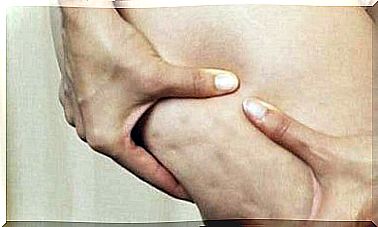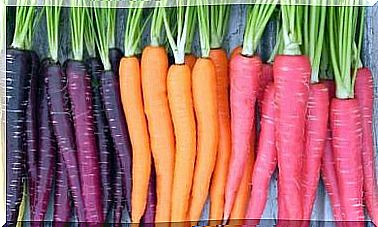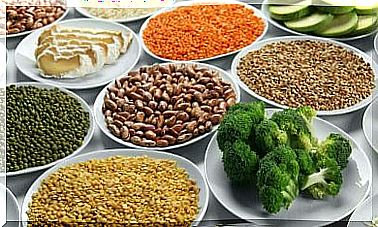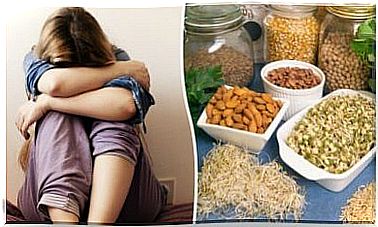What Are The Causes Of Swollen Belly?
If your belly is continuously growing three times its normal size, it may be due to your eating habits. Increase your water intake and get physical activity to boost gas elimination.

No matter what you do, how much exercise you do and what diet you follow … your belly never shrinks. The same can happen in the legs. What are the causes of a swollen belly?
Beyond aesthetics, the problem lies in the feeling of heaviness and discomfort, which does not always allow us to enjoy our activities.
What are the causes of a swollen belly? We will explain it to you in this article.
Causes of a swollen belly
The stomach is one of the most inflamed parts of the body. This discomfort affects a third of women and appears more than once a week.
If it’s not something serious, it can be bothersome as this disorder is usually accompanied by pain, gas, or constipation.
The main causes of belly swelling are as follows:
Pre-menstrual syndrome
It is the most common trigger for abdominal inflammation.
During this period before menstruation, the production of prostaglandins is reduced. This causes water retention, as well as abdominal swelling.
Accumulation of gas

Air collects in the abdomen and when it tries to get out, it distorts it. This is why after the meal, the situation can get worse.
During digestion, many gases are formed, but they take time to come out of the body.
Water retention
Standing or sitting for a long time is one of the causes of a swollen belly because water collects in this area.
Fluid retention is linked to sedentarism, poor circulation and excess salt or sugar.
It can also occur if you don’t exercise and drink enough water.
Intolerances

This is an intolerance because the discomfort and swelling start after eating certain foods that can even cause diarrhea.
The most common intolerance is lactose (milk sugar) and it occurs when there is a deficiency in the lactase enzyme.
Hormonal diseases
When fluids are retained in the legs or lower abdomen, the causes may be liver, kidney or heart problems.
The use of certain drugs also generates alterations and weight gain.
Irritable colon
One of the causes of a swollen belly is also the accumulation of gas in the intestine.
In this case, several symptoms are associated: abdominal pain, problems going to the toilet, chronic and recurrent intestinal discomfort.
This comes from an alteration of the bacterial flora.
Eat too fast
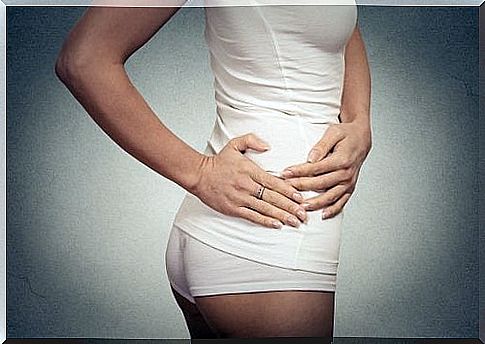
Sometimes we don’t realize that instead of eating, we are simply swallowing, almost without chewing the food.
This habit is bad for several reasons:
- First of all, the feeling of fullness takes almost half an hour to reach the brain.
- Then it makes us eat more.
- Finally, when you swallow, air enters the body and turns into swelling.
Consume frying
Filled turnovers, croquettes, breaded and fried foods are the staple of many people’s diets.
Fried foods slow down the digestion of fat and ultimately increase swelling after meals.
Drink sodas
The bubbles inflate. This is a good summary.
Consuming soda with gas inflames the stomach and if you opt for sugary drinks, you suffer a double damage because the empty calories that you ingest contribute to weight gain.
Carbonated water can also cause the feeling of a bloated stomach even though it does not contain sugar.
Eat too much or not enough fiber
The lack of this nutrient is linked to constipation (and therefore swelling, but it is not good to consume too much).
Fiber can be counterproductive because it can cause diarrhea and inflammation of the gut.
Consuming too much flour
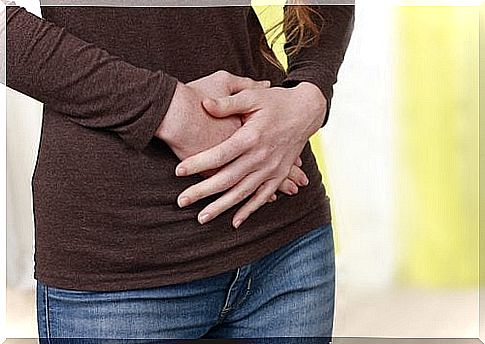
Pastries, pizzas, pastas (among the meals that are part of our daily menu) can cause a lack of digestive strength.
This means that in the stomach the enzymes are depleted before finishing the digestion of food.
As a result, these foods are “stored” where they shouldn’t and when they break down they cause gas, dyspepsia and abdominal swelling.
Tips for reducing abdominal swelling
Once you have identified the reasons for your belly swelling, the next step is to change some habits so that it doesn’t happen again.
Here are some tips that can help you:
- Reduce salt intake.
- Drink at least two liters of water per day. Choose natural juices instead of carbonated drinks and sodas.
- Avoid ingestion of laxatives, as they are addictive and diarrhea.
- Eat calmly and chew each bite several times. Leave aside stress, which can cause fluid retention.
- Avoid foods that cause gas (for example, pulses and artichokes).
- Consume plain yogurts to balance the intestinal flora.
- Do an analysis that determines whether or not intolerance to a particular food.
- Substitute the “forbidden” food (for example, drink almond milk instead of cow’s milk).
- Eat the right amount of fiber per day. Add more raw vegetables and fruits.
- Exercise to help air out of the body, and apply pressure to the swollen area to help eliminate gas.
- Reduce the intake of fried foods and junk food. Bake, steam or boil foods.
- Choose whole flours instead of refined flours.

